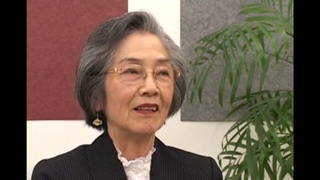Interviews
Making patients feel comfortable by using patient's regional dialects
As far as I know - I didn't know the difference. It was after the war, when you hear things that people are saying. But at that time, I wasn't aware of anything about class or position or whatever. Because none of my parents, neither of my parents made us aware of such things. But it was... I don't know. My father loved to talk their kind of language, sometimes it's coarse, sometimes it's... it's just like some people talk to each other in, like they're Okies or, you know, hillbillies or whatever. But there's a Japanese group that talked that way also, and he would use that, certain phrases to make them feel at home. And I'd hear this kind of language and I'd think, "Oh, must be Mr. so-and-so who's here." I mean, you could kind of tell by the twang or whatever. It was interesting to listen to. And my father wasn't the kind who would whisper, and, you know, it was always loud and backslapping kind of...
I*: And your sense was he did this just to make his patients feel just more comfortable?
Uh-huh. 'Cause it's just by chance that he was where he is, or at that time, where he was. I don't think he believed that he was all that high-falutin'.
* "I" indicates an interviewer (Tom Ikeda)
Date: September 21, 2009
Location: California, US
Interviewer: Tom Ikeda, Martha Nakagawa
Contributed by: Denshō: The Japanese American Legacy Project.

